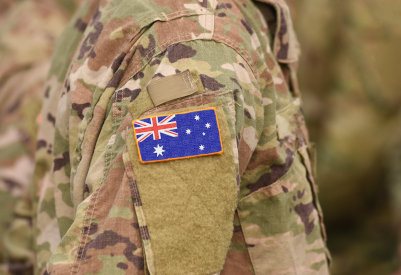Military members are required to abide by the law, just like other Australians. Where offences occur in relation to their official duties, a separate justice system is required to ensure that these matters are handled appropriately.
The military justice system supports the Australian Defence Force (ADF) in the investigation of misconduct by military personnel, and the implementation of disciplinary and administrative actions where appropriate.
The military justice system applies to all ADF members in times of peace and war, whether in Australia or overseas. This is essential because the ADF may conduct operations in countries where the civil system has broken down and no law applies.
The ADF provides some insight into the four components of the military justice system.
Discipline system
All ADF members are subject to the Defence Force Discipline Act 1982 (DFDA).
Offences that occur in a military environment are disciplined under the DFDA, whilst other criminal offences are referred to civil authorities, such as the police.
The discipline system includes processes for the investigation of alleged offences, preferring of charges and conduct of fair and reasonable trials.
Some key differences between the military and civilian discipline systems include:
- ADF members have access to free legal advice in the internal discipline system
- ADF members have the benefit of safeguards such as automatic review of convictions and punishments and the right to an internal and external appeal. These safeguards are more extensive than those available in the civilian criminal system.
Adverse administrative action
Administrative action may be used in cases where no criminal offence has been committed, but the conduct of military personnel falls below the standards of professionalism expected by ADF members.
These actions include counselling, formal warnings, censures, removal from command, and discharge from service.
Right to complain
Whilst ADF members wishing to make an internal complaint typically report this through their chain of command, other avenues are available for lodging a complaint if this is deemed to be more appropriate.
For example, the Army Fair Go Hotline can be used to report behaviour such as harassment, verbal abuse or assault, and reports may remain anonymous. A range of other internal and external avenues are also available for reporting such behaviour.
In some cases, members may also seek a review of ADF-imposed administrative decisions by the Federal and High Courts.
Administrative inquiries
The Defence (Inquiry) Regulations 2018 (the Regulations) provide a road map for inquiries concerning the Defence Force, covering available legal powers such as the ability to compel the production of evidence.
The Regulations help to:
- enable robust and thorough investigations
- facilitate decision-making through the provision of accurate, reliable and timely information
- secure the proper functioning of the Defence Force
The Regulations provide for two possible inquiry formats
- Commission of Inquiry – used for higher level matters that are particularly complex and sensitive
- Inquiry Officer Inquiry – used to inquire into more routine matters



